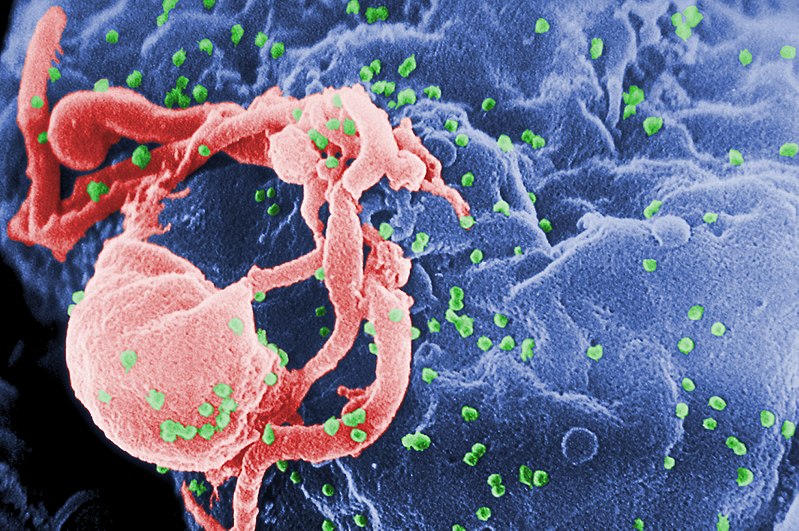Evolution should have removed HIV from the human race as we would have built an immunity to it, much like bacteria do to anti-biotics, yet we have not. In fact the continued existence of disease is proof against evolution as natural selection would have left only humans who were immune to them.This example misconstrues the rates at which evolution occurs. Because HIV causes such a horrible disease, then humans should evolve immunity in a short period much like bacteria and antibiotics. Bacteria develop their resistance through a basic example of natural selection. Our antibiotics kill 99.9% of all the bacteria within the patient. The 0.1% that survive already possess a random mutation which makes them immune to the medicine. Those that survive reproduce through asexually reproduction by basically cloning themselves as quickly as every twenty minutes. This process has occurred with several different bacterial strains, insects with pesticides, and in many natural cases involving venoms and toxins.
Interestingly, the writers of Conservapedia chose to attack evolution by confirming that evolution. They complain that it doesn't happen in humans. As you can guess, they will be wrong.
So why haven't humans evolved resistance to HIV? The simple answer is that we are not bacteria. Bacteria are single-celled organisms while we have 50-100 trillion cells in our body. Some strains of bacteria can reproduce every 20 minutes, which would produce roughly over 1000000000000000000000 identical bacteria in 24 hours. Humans average a new generation every 25 years. Since HIV has only affected humans since the 1950's, only 2 or 3 generations have been impacted by the disease. Basically we reproduce much slower that bacteria and genetically respond to environmental changes over longer periods of time. Thankfully, medical advancements replace our slower genome and can help protect us from HIV exposure and affects. So IF the genetic resistance to HIV existed it would take a long to pass through the population effectively eradicating HIV from affecting our gene pool.
Interestingly, there are some people who are immune to HIV. That's right. Some sex workers in Africa carry a gene that makes them resistant to being infected by the virus. Even with repeated exposure to the pathogen, they did not contract it. Viruses enter a host cell by mimicing a receptor on the cell surface. Those people immune to HIV simply lack the particular receptor which HIV uses to get into the cell. But even then, that would not guarantee the end of HIV as viruses also evolve reproducing at a faster rate than we do. Viral evolution explains why you need a new flu short every year and why we now have multiple strains of HIV.
So to review: Conservapedia complains about evolution because we don't evolve as fast as bacteria do. But we are far larger, more complex and reproduce much slower than bacteria. Even with these disadvantages, some of us are already immune to HIV which could potential spread throughout the species. HIV immunity causes no problems for the theory of evolution and actually makes a great example of evolution at work.

No comments:
Post a Comment